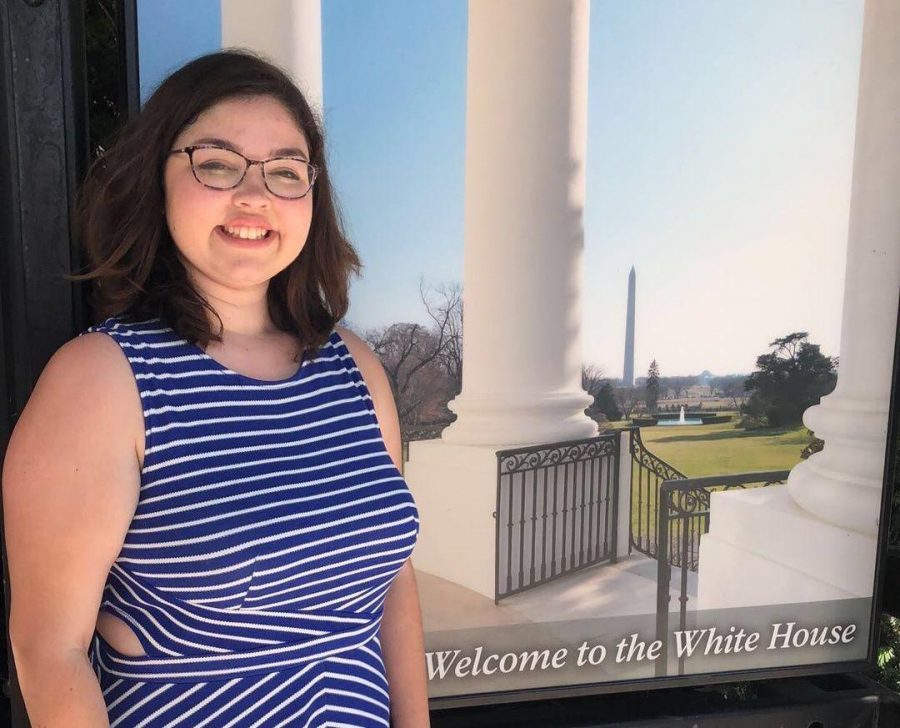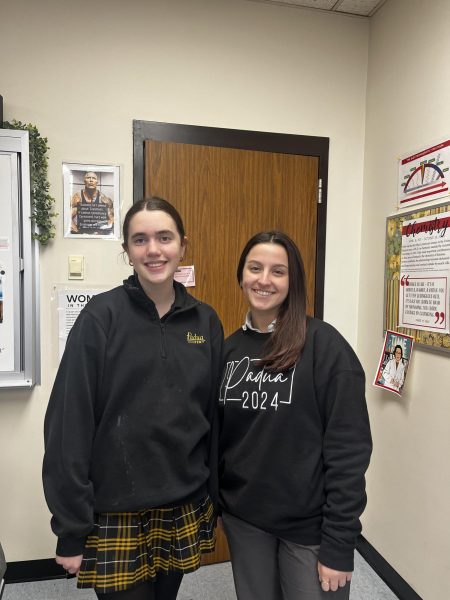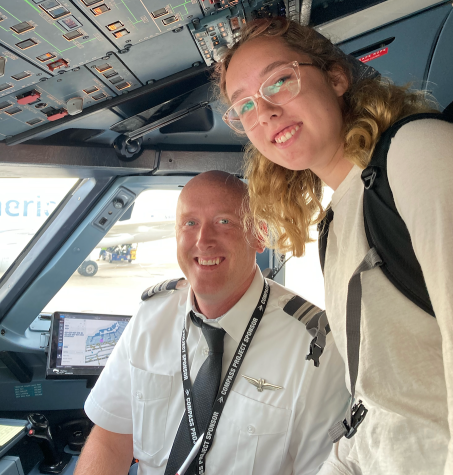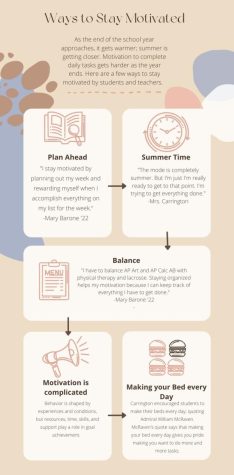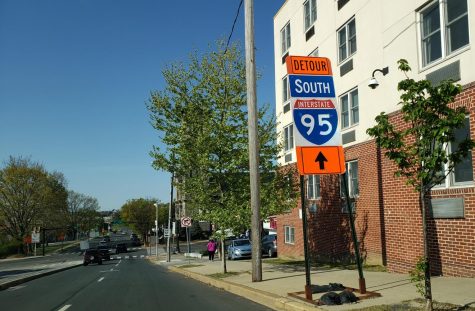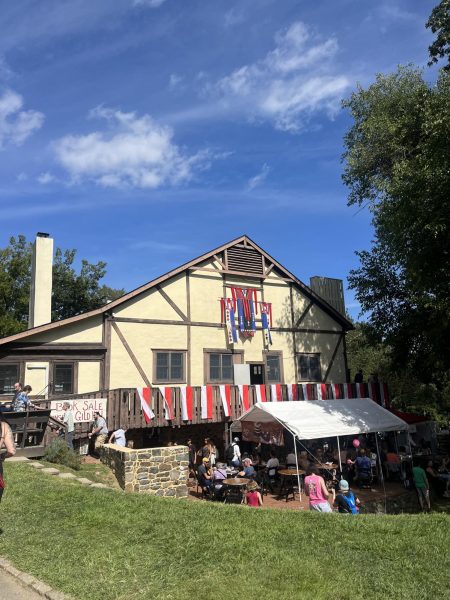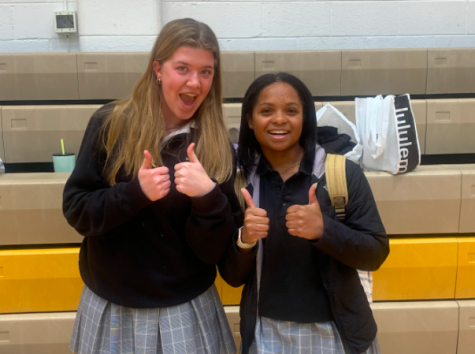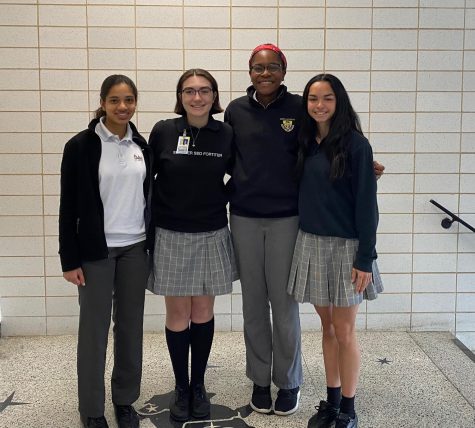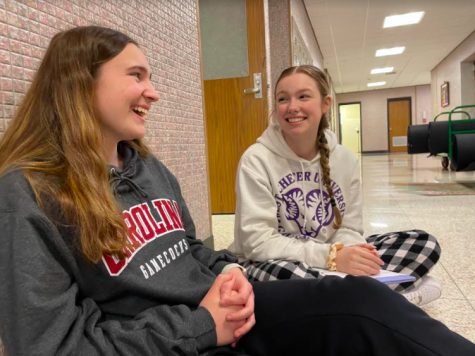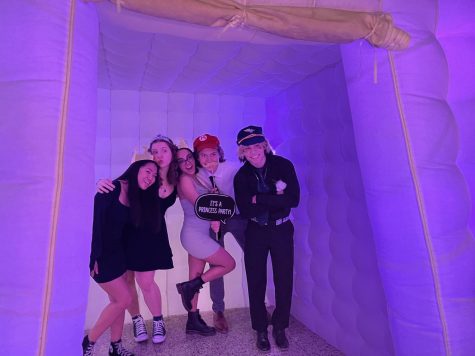Seniors, Alumnae Ready to Vote in 2020 Election
Gina Rufo ’20 loves history and is excited to vote for the first time. “We need voters who are educating themselves and are voting for who they think has the country’s best interests at heart,” Rufo said.
With the 2020 election a day away, millions of Americans will vote—or have already voted—for officials on the local, state, and national levels. Whether they vote early in-person, via mail-in ballot, or on Election Day, citizens across the nation can shape the government by exercising this right. Some seniors and recent alumnae gained the ability to cast a ballot for the first time in the country’s “most important election ever.”
Gina Rufo, a 2020 Padua graduate, is currently studying history and pre-law at Immaculata University. Rufo will return home to Delaware and cast her ballot alongside her family. She and her parents have been “very diligent” about following Covid-19 guidelines but chose to vote in-person for the experience.
“Because this is my first election and I’m in politics classes, my parents wanted me to have that first election experience at the polls,” Rufo said. “My parents have always really valued education… and being able to use your voice.”
I know that everyone’s been saying that this election isn’t going to count because we’re not doing it the way we always do it, but I think we should just power through… [and] get the results.
— Emma Law '21
This year marks only the 26th presidential election in which women can vote. Rufo feels connected to the women’s suffrage movement; she looks forward to taking advantage of the opportunity to vote and exercise her given right.
“As a young woman, the right to vote is something that had I been born in the past, I know I would not have been able to do,” said Rufo. “… It’s definitely empowering to say, ‘I’m going to vote, I’m going to do my duty, and I’m going to use my voice.”
Emma Law, a current senior and “history person,” also cited the suffrage movement as a reason why voting is important to her. She turned 18 in late October and is registered to go to the polls on Election Day.
“Knowing women 100 years ago couldn’t vote just kind of makes me want to vote because they fought for me to vote,” Law said. “…I kind of want to go there and be like, ‘Hey, they fought for me to vote so I’m gonna vote.’”
Law said she wanted to vote in 2016 since the election was between a woman and a man, but she is still “really excited” to cast her vote in this election because of everything that has happened this year. She recognized that whoever wins can make serious changes.
“They said last year was a big election, but I feel like this is a bigger election because we’re in the middle of a pandemic, and each of them have different policies,” said Law. “I’m kind of ready for a change so we can get this under control, and we can move on.”
Senior Liv Sheetz said she will also cast her ballot in-person on November 3, and she agreed with the other new voters that the experience is formidable but also exciting. Sheetz strongly believes that her vote will truly count toward the outcome.
“I feel like it’s kind of scary and almost like my vote is even more important now,” she said. “It’s always important, but especially since everyone’s saying [that] it’s especially important this year because it’s such a big election… it’s kind of cool how my vote actually counts a lot now.”
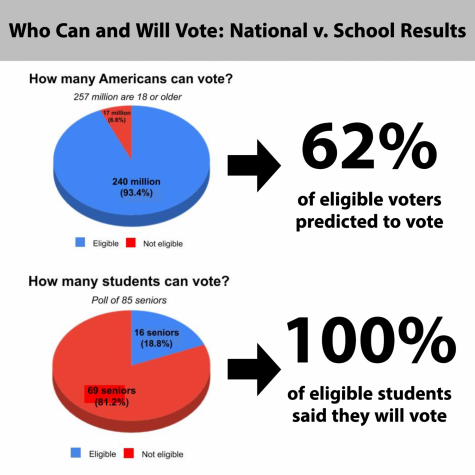
Rufo agreed but also understands why people may think their vote will not matter, due issues with the Electoral College and popular vote such as in 2016. However, she encouraged wary citizens to remember that they can contribute to change, even if it is not obvious.
“My hope is that people can learn from past elections,” she said. “I think as Americans, we should always be learning from our past, so I do hope that people can see that their vote does matter.”
These concerns of the three new voters are justified: According to USA Today, only 60% of eligible voters cast a ballot in 2016. But experts predict a historic turnout of 62% this year, or 150 million votes. This is in sharp contrast to local results. In a recent poll of 85 members of the senior class, all eligible respondents said they will vote.
And Rufo thinks that young people, a large portion of eligible voters, know the weight of this election and understand their responsibilities in making this decision. Although under “a lot of pressure,” she urged people to vote in any election as if it were the most important one.
“But I think at the same time, every generation of new voters sort of goes into it wanting to make a difference,” Rufo said. “…This whole new crop of voters, who are so passionate about voting… I think that they understand the importance of the election, and I don’t think they’re going to disappoint.”
Both Rufo and Sheetz hope that others will think carefully about their choice and educate themselves on prominent issues—local and global—in order to form their own opinions. While Sheetz has no major concerns about voting, she shared her thoughts about the results of the election.
“I think it just is going to be really split,” Sheetz said. “So whoever wins, it’s going to be a great divide.”
It’s kind of cool how my vote actually counts a lot now.
— Liv Sheetz '21
Sheetz prepared to make her decision in a few different ways. At home, she watched the debates and found information on the voting process, and in school, she read articles and learned more about the presidency.
“We’ve been doing some stuff with that in my history class, so looking into that [political information] and what qualifications you need to be president,” said Sheetz.
Like Sheetz, Law prepared to make her decision by consulting news sources, watching the debates, and reading candidates’ plans. Although a little nervous that recounts are possible, Law said she is eager to take part in the election and get the results.
“I’m ready to see what happens,” she said, “because we think we know what’s going to happen, but we want to know what’s going to happen. And I’m just ready for it to happen.”
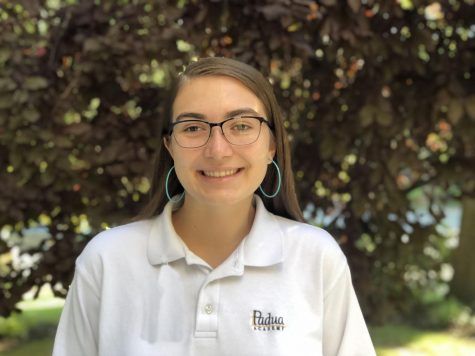
Emily Malone is a part of the Multimedia Journalism class at Padua and is editor and chief of Padua 360. She is a Senior at Padua who graduated middle...

